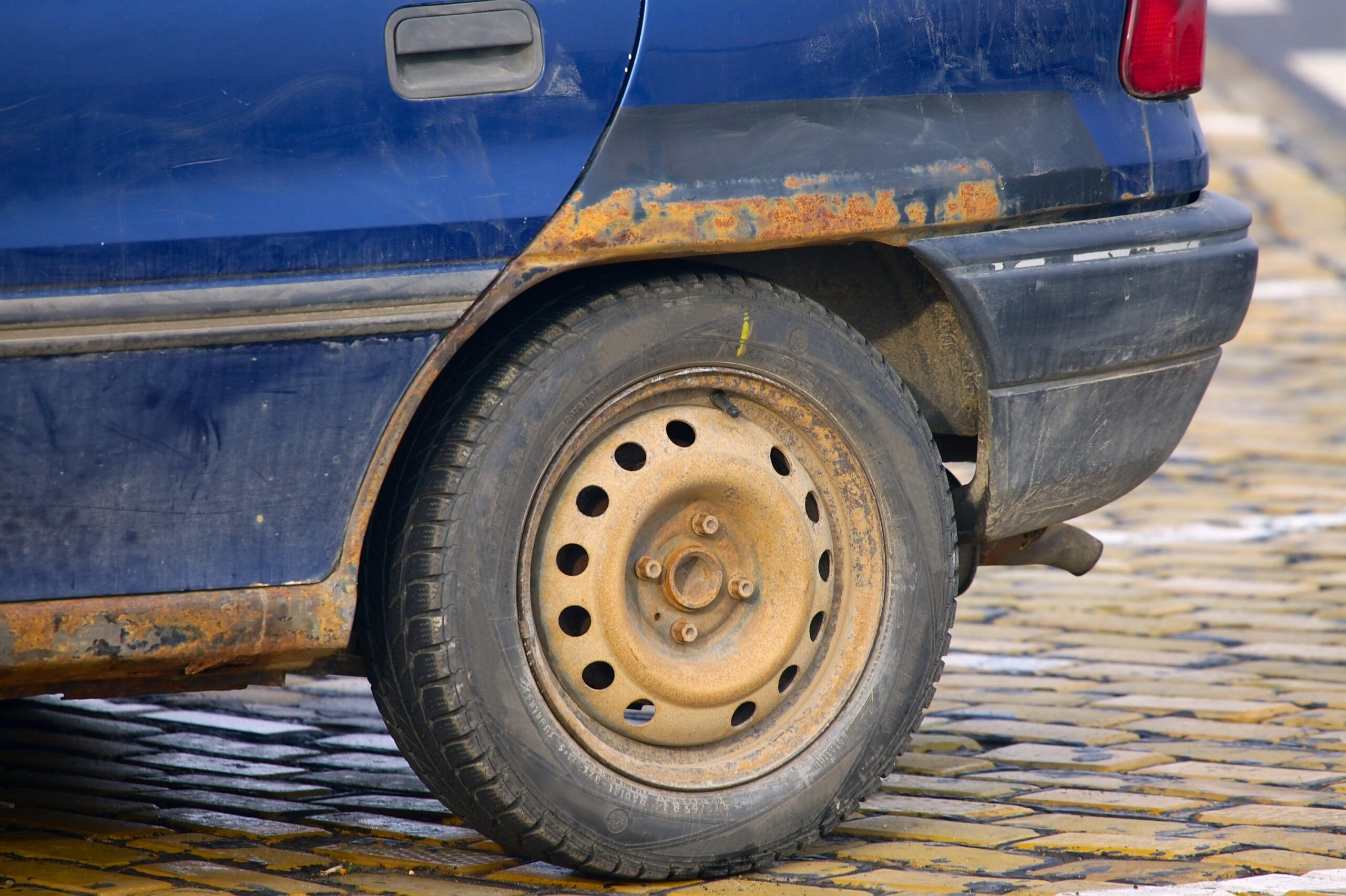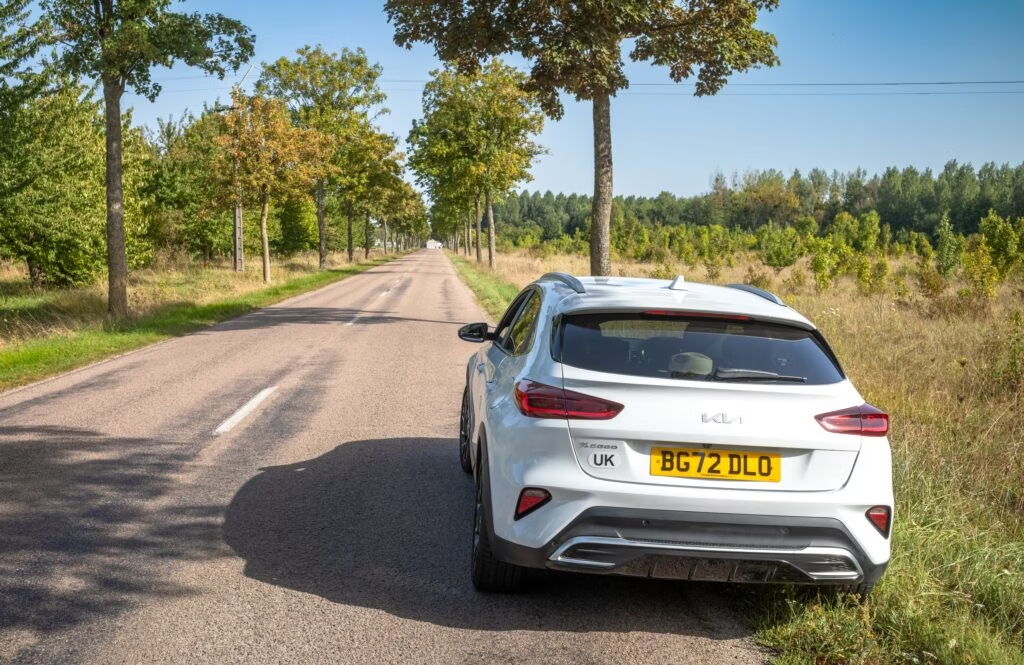Does vehicle condition impact the value of your car?

How well does your car run? How does it look? Your vehicle’s condition – both in terms of its performance and appearance – can significantly influence its value on the resale market.
Whether impacted by natural factors such as age or altered due to collisions or improper maintenance, the condition of your car or van today affects how much you can sell it for tomorrow.
Read up on the relationship between condition and resale pricing to maximise your vehicle’s value whenever you choose to sell.
- Car value depreciation 101
- Condition and car value
- Importance of documentation
- FAQs
- How can I track the value of my car?
- Ready to sell your car?

Car value depreciation 101
No car stays the same value forever. In technical terms, depreciation is the difference between what your vehicle was worth when you purchased it and the price you would achieve if you sold it today.
In general, car value typically decreases the most in the first year of ownership. Value often continues to drop during the first few years after purchase, before levelling off.
Both external factors, such as market supply and demand, and individual, internal factors, such as mileage and age, affect the rate at which a car’s value changes.
As so many elements play into depreciation, one way to stay on top of your car’s shifting pricing is to track its value over time. This information can help sellers set realistic pricing expectations and buyers make informed financial decisions.
Condition and car value
The condition of a vehicle plays a pivotal role in determining its worth on the resale market.
Unsurprisingly, a well-maintained car with minimal wear-and-tear will typically command a higher resale value compared to one exhibiting signs of neglect. If you wash your car often, repair scratches, keep the interior tidy, get it serviced when needed, and generally keep it at its best, you should get a better price when it comes time to sell.
It pays to keep your car or van in top shape. However, no experienced car dealer (like the 7,500+ we work with) is expecting a used car to be flawless. While a scratch here or there is fixable, more serious issues that have been ignored will likely cost you in terms of resale price.
There are two main ways to think about vehicle condition: in terms of performance and appearance.
Vehicle performance and safety

Buyers value reliable, functional vehicles. To get the best price possible, it’s important for sellers to address any maintenance issues and present their car in the best possible light.
This includes ensuring a vehicle’s mechanical integrity. To be deemed roadworthy by the Ministry of Transport, cars and vans need to be structurally sound, meaning that their bodies, as well as essential components including axle and suspension, function properly. Some modifications may impact these components and must be reviewed and adjusted according to legal standards.
Under the bonnet, the engine, gearbox, power train, and ignition systems all need to be in working order; otherwise, you risk the safety of future drivers and passengers due to non-functioning equipment, in addition to experiencing devaluation on the used car market. Headlights, doors, tyres, mirrors, and seatbelts all need to be checked as well.
Many vehicles have advanced electrical systems that supply power to lighting, infotainment, and other car features. Issues in any of these areas could indicate a problem with your car battery, which can be costly to replace. Additionally, cars with out-of-date technology are likely to fetch lower prices as they can be both harder to repair and consumers are typically looking for the latest tech features.
Finally, a car’s condition is lessened if there are problems with its fuel and emissions systems. Using the wrong fuel type, such as putting petrol in a diesel car (or vice versa), can lead to long-term damage to your vehicle’s fuel system. A car with fuel damage isn’t something many buyers are looking to take on. The same goes for vehicles that are non-compliant with the latest emissions regulations as they are guaranteed to rack up fines when driving through Clean Air Zones.
Car appearance
Looks are the first thing that potential buyers notice. While a clean car may attract additional customers, one that’s seen better days may inadvertently suggest the existence of mechanical or structural issues on top of cosmetic ones. To help enhance your car’s value, keep both the interior and exterior of your vehicle in tip top shape.
Externally, you can keep your car looking new with regular washing and waxing. Washing approximately once a fortnight helps stop dirt and grime from building up on the bodywork. Waxing protects against long-term paintwork deterioration, makes your car easier to clean, and prevents scratches – all of which can reduce your car’s resale price. We recommend making a habit of waxing every three months.
It’s also important to repair scratches and dents, remove rust, and address other cosmetic issues as soon as you notice them. Keep in mind that how you store your car may actually be damaging its appearance and parts!
Internally, we suggest hoovering and cleaning your car about once a month to present crumbs, dirt, and who-knows-what-else from finding their way into your vehicle’s electrical and mechanical components. Removing any stains and fixing any broken accessory pieces will also help attract buyers.
Importance of documentation
Does your car have all of its required documentation? When looking at used cars, buyers will likely want to review their maintenance and service history to get a clearer sense of the vehicle’s overall condition.
Documentation such as the V5C logbook and MOT certificates verify a car’s condition, including its age, mileage, emissions status, and collisions suffered, up to the date of recording. Repair and maintenance documentation can help mitigate the impact that past accidents may have on car value. For buyers, this legally-certified information can be contrasted against sellers’ accounts to help get a more accurate understanding of the car in question.
When buying a car, it’s common to pay less for vehicles with a partial or missing service history. Purchasing a vehicle with unknown history can be seen as taking on an additional risk, something many motorists shy away from. To mitigate against that risk, used cars without full documentation usually come at lower price tags.

FAQs
How can I check the condition of a car?
You can assess a car’s condition by reviewing V5C logbook or by asking the DVLA for past MOT results. Both will include mileage, past maintenance, accident and ownership history, and more. Compare these documents with the visuals of the vehicle you’re looking at, and don’t shy away from asking questions!
If I repair my car after an accident, will it still decrease in value?
After an accident, your car will have a diminished value, to use an insurance term. However, if you receive a quality repair job and work to maintain your car’s condition afterward, you can help mitigate this drop in value and still get a competitive price for your vehicle when you choose to sell.
Do you have any tips for general car care?
Looking after your car is a big part of vehicle ownership. Review our comprehensive guides for more on how to maintain your car’s condition, keep your car looking new, and more.
How can I track the value of my car?
If you’re not sure what your car’s value is to begin with, it’s hard to know how much money its condition might take off the price.
All vehicles depreciate at varying rates, with no rule of averages accurately describing any one car’s changing value. However, with Motorway’s Car Value Tracker, you can get free, reliable monthly price alerts for up to six vehicles at once.
Follow changes to your car’s value to choose the best time to sell, and make informed choices about investments in your car’s maintenance.
Ready to sell your car?
Want to read more about owning, valuing, and selling your car? Check out more of our guides here, covering everything from depreciation to maintaining your car’s value. Understand your car’s worth in the wider market.
- Sell my car
- Track your car value
- How much is your car worth?
- How much does mileage affect car value?
- Does age impact the value of your car?
- Does service history impact the value of your car?
- Does market demand impact the value of your car?
- Does fuel type impact the value of your car?
- Do modifications impact the value of your car?
- Does the number of owners impact the value of your car?
The information provided on this page is for general informational purposes only and should not be considered as professional advice.